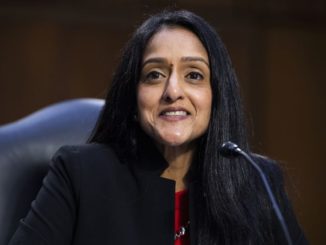
Sharad Pawar’s decision to step down as NCP chief is a strategic move to assert his authority over his party forever, analysts say, citing the example of Bal Thackeray who once pulled the same move to stem revolt.
Mr. Wagle claimed that the NCP supremo was playing pressure politics with his nephew, who was trying to join hands with BJP along with a chunk of the NCP, with the hope of becoming Chief Minister in case Eknath Shinde and his 15 rebel Shiv Sena MLAs get disqualified in the Sena vs Sena case pending with the Supreme Court.
By Abhinay Deshpande
Senior politician Sharad Pawar’s announcement of his decision to step down as president of the Nationalist Congress Party and not contest any future elections has sent shockwaves through the political landscape — not just in Maharashtra, but across the country.
The development should not be seen as a spur-of-the-moment move by the 82-year-old Mr. Pawar, as is reflected by his crafty and calculated approach to politics. It is likely part of a larger plan to assert his authority within the NCP, a party which was formed on June 10, 1999, after he — along with P.A. Sangma and Tariq Anwar — was expelled from the Congress for opposing the Italian-born Sonia Gandhi as the party’s Prime Ministerial candidate.
The Thackeray model
A similar move was pulled by Shiv Sena founder Bal Thackeray — Mr. Pawar’s close friend and political foe — almost three decades ago, when his party was stung by the revolt of Chhagan Bhujbal, now an NCP leader, and 17 other MLAs from rural Maharashtra, who objected to his ‘style of functioning’. However, after Shiv Sainiks begged their Wagh (tiger) to reconsider his decision, Mr. Thackeray agreed to their request and forever stamped his authority on his party.
However, close confidants of the NCP patriarch said that he would not step back but would continue to run the show from outside. Mr. Pawar’s nephew and senior NCP leader Ajit Pawar gained traction after he told party workers that there was no need to get emotional. “Pawar saheb will continue to guide the party even after resigning, like Sonia Gandhi who remains the supreme authority [in the Congress] in spite of relinquishing the top post,” he said.
Political analyst and senior journalist Nikhil Wagle, who has been observing the rise of the NCP for decades, says that the senior Mr. Pawar’s announcement of his intent to quit as party president can also be seen as a move to put pressure on his nephew and show him that he was the ‘boss’, especially given the speculations that Mr. Ajit Pawar is flirting with the BJP.
“It was indeed a shock to everyone, not just in Maharashtra, but across the country. Mr. [Sharad] Pawar is the tallest leader Maharashtra has ever seen after Mr. Thackeray, and we can say he is playing the ‘Pawar Game’ in his own style,” he told The Hindu.
Mr. Wagle claimed that the NCP supremo was playing pressure politics with his nephew, who was trying to join hands with BJP along with a chunk of the NCP, with the hope of becoming Chief Minister in case Eknath Shinde and his 15 rebel Shiv Sena MLAs get disqualified in the Sena vs Sena case pending with the Supreme Court.
“It is a perfect example of pressure politics, which Mr. [Sharad] Pawar had played emotionally to tackle the issue. In a way, the senior has left no room for Mr. Ajit Pawar to think of joining hands with BJP, which will be political suicide for him,” he said.
The four-time Maharashtra Chief Minister and former Union Minister also addressed the deeper internal power struggle within his family in a suave and sophisticated style by paving the way for his nephew to take over the leadership at the State level, as a means of maintaining unity within the NCP.
Coalition impact
However, one of the biggest concerns following Mr. Pawar’s announcement is the impact it will have on the tripartite Maha Vikas Aghadi, an unlikely coalition of the NCP, the Congress and their ideological opposite, the Shiv Sena led by Uddhav Thackeray.
With the senior statesman Mr. Pawar no longer party chief, there is no one person to keep the already crumbling MVA glued together ahead of the 2024 Lok Sabha and Assembly polls. The alliance has already been facing challenges from within, especially given the friction between the Congress and the Thackeray faction of the Sena (UBT), and Mr. Pawar’s absence could further weaken it.
However, political observers maintain that the MVA is Mr. Pawar’s pet child — which has emerged as one of the country’s most powerful political alliances despite the different interests and ideologies of his members — and insist that he would continue to protect it.
“He might not be the president of NCP on paper, but he will continue to be their leader and lead MVA. Until 2019, no one would have ever imagined Shiv Sena joining hands with Congress and NCP, but he had made it possible, and there is no doubt that he will continue to hold us together,” a senior NCP leader said.
Bigger role for Sule
Even if the party breaks ranks with the MVA and joins forces with the BJP despite Mr. Pawar’s attempts to keep the NCP family intact, the octogenarian leader does not want this to happen during his tenure and wants to avoid any association with such a move. It also allows him to take a ‘democratic stance’ by aligning himself with the party’s decision.
Moreover, Mr. Pawar’s daughter Supriya Sule, a member of the Lok Sabha from Baramati, will continue to play a major role in the party’s leadership at the national level. A senior NCP leader also suggested that Ms. Sule should become the national president of the party, while her cousin heads the State unit.
Even Mr. Bhujbal admitted that Ms. Sule was ideal for a national role as she had a good grasp of issues. “She has been doing well as a parliamentarian. So, there will be no problem in deciding the new president. Ajit Pawar should handle the responsibility of the State. The division of work is already there,” he said.
(The author





Be the first to comment